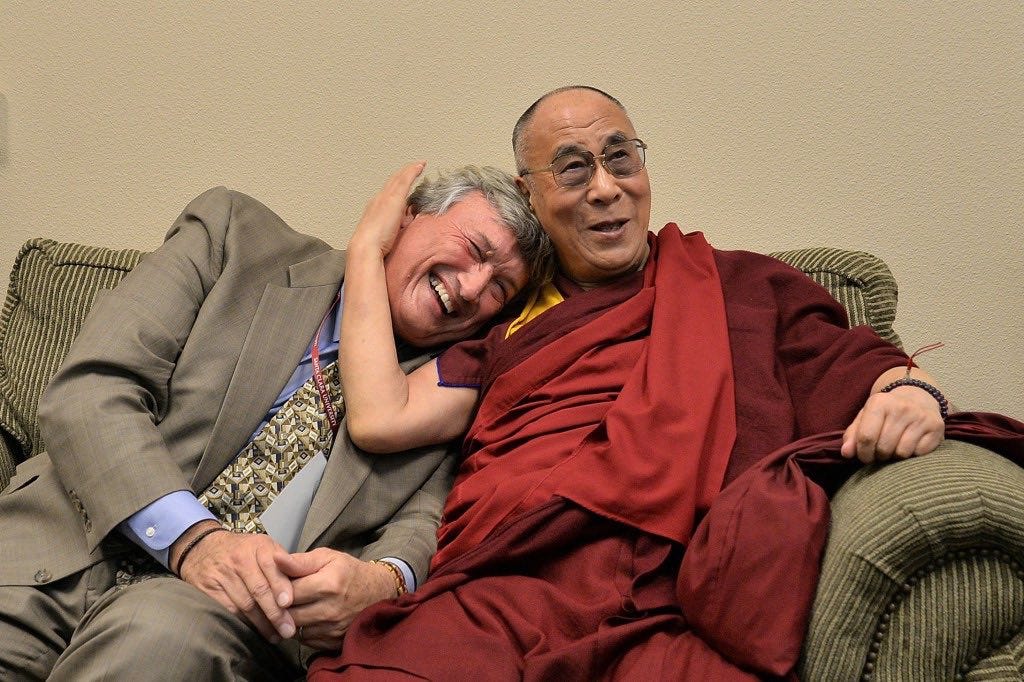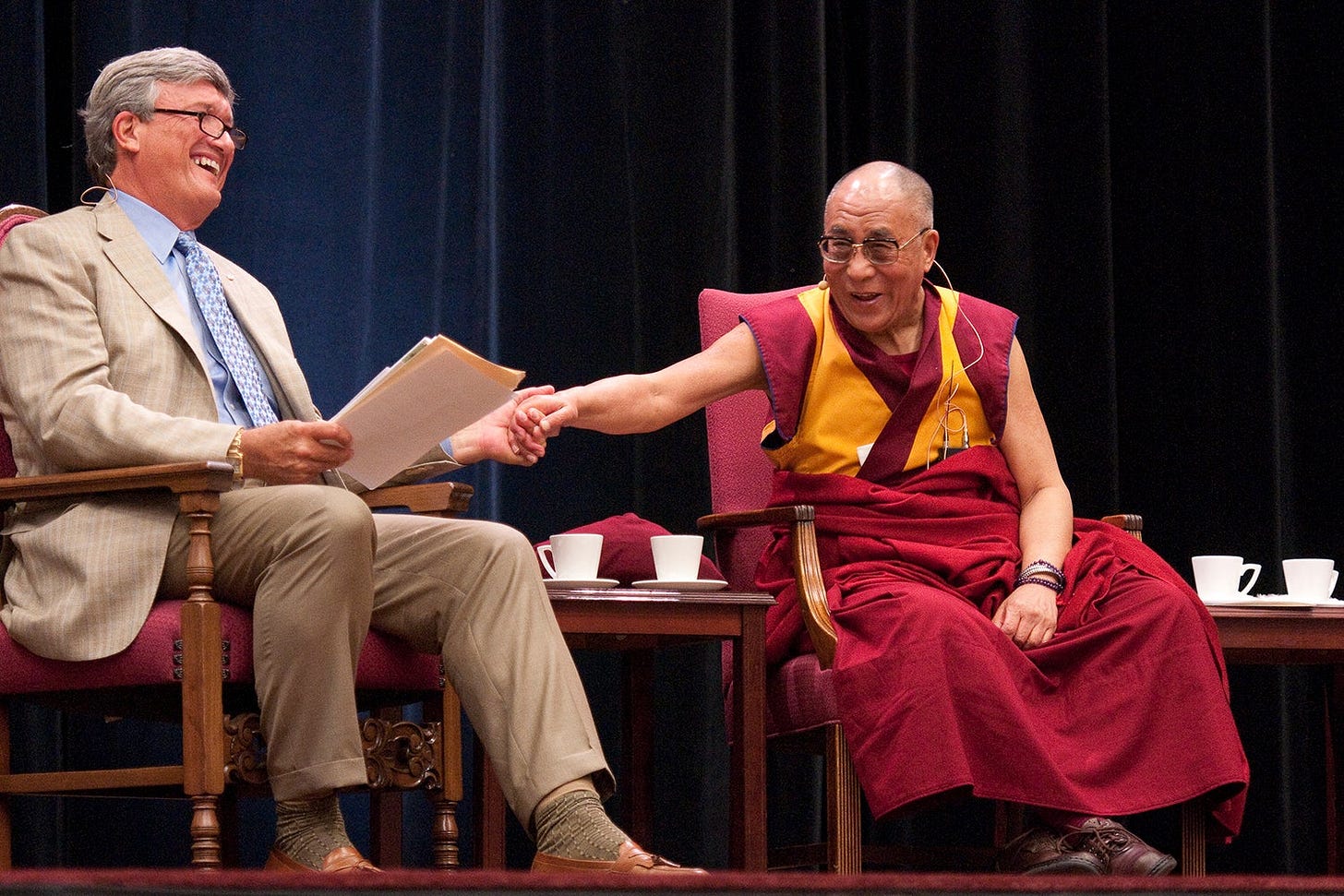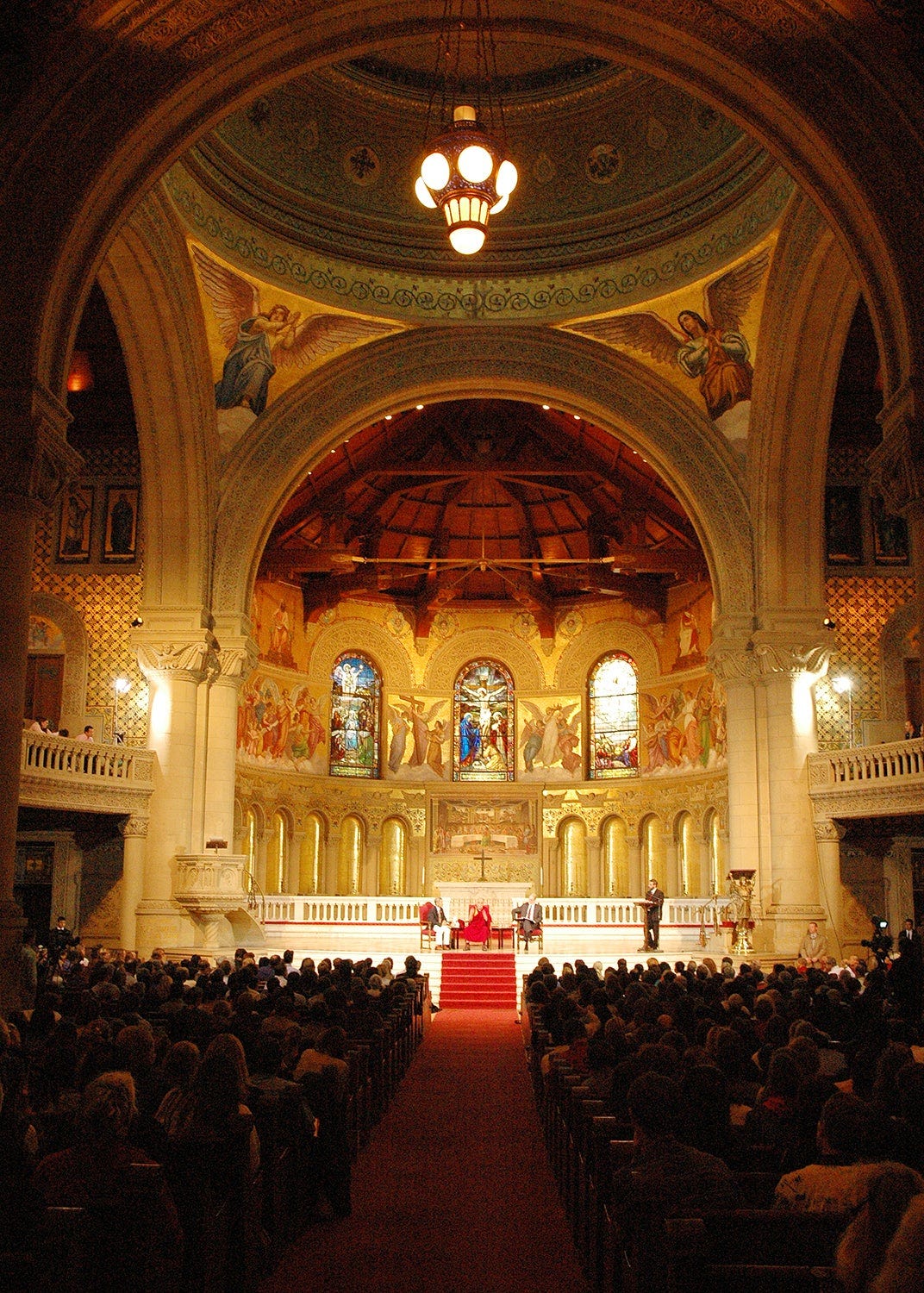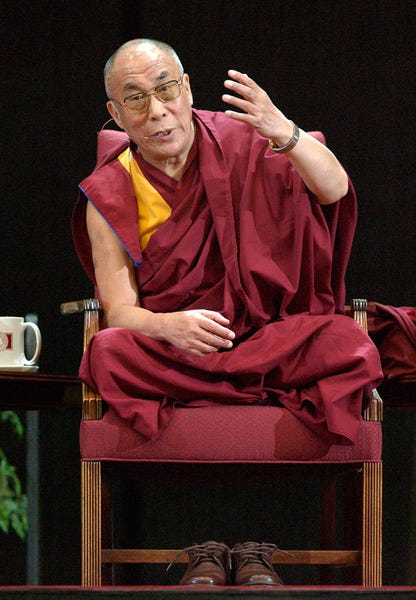Stanford’s trailblazing “Physician of Compassion,” James Doty, has died.
“Usually once we see immeasurable struggling, we really feel overwhelmed. However each one among us has the capability to make one particular person endure much less day-after-day. On daily basis go forth and do what you are able to do.”

(Picture credit: L.A. Cicero)
Fifteen years in the past, I had the “Dalai Lama” beat at Stanford. The event: the Dalai Lama was swinging by the campus for a 2010 go to and auditorium lecture. As the humanities and humanities author at Stanford, I wrote in regards to the go to. A giant purpose for the Dalai Lama’s presence was his buddy Dr. James Doty, a Stanford neurosurgeon and neuroscientist, who was founding a middle for compassion referred to as CCARE at Stanford. Through the years, he gave $29 million to charity, in keeping with the Wall Road Journal in an article titled “Giving Until It Hurts.” That was about 99% of his web price.
James R. Doty died on Thursday, July 17. He was 69. He had been battling critical medical challenges following a surgical procedure final October.
Right here’s what I wrote again then for the Stanford Information Service on the Dalai Lama, on my tour of obligation with James Doty:
“I wish to stand to see extra faces,” the 75-year-old Dalai Lama mentioned, refusing a chair to handle the capability crowd in Maples Pavilion Thursday.
There have been loads of them to see. The religious chief spoke to about 6,300 folks on “The Centrality of Compassion in Human Life and Society” and, as this 12 months’s Rathbun Visiting Fellow, about 1,000 college students for the “Harry’s Final Lecture on a Significant Life” collection in Memorial Church just a few hours later (see photograph under). However in each venues, the message was the identical.
He repeatedly careworn a secular method to compassion that reaches past particular person creeds and beliefs. He spoke of the necessity for mutual respect and friendship, the care and schooling of kids, and ongoing dialogue for battle decision.
Evident all through was his fascination with science, the neurology of the thoughts and mind, the curiosity within the intricate distinctions between thoughts and physique that led him to be a founding benefactor for the Middle for Compassion and Altruism Analysis and Schooling (CCARE) at Stanford.
The 14th Dalai Lama, Tenzin Gyatso, is an previous buddy at Stanford: This week marks his third go to in recent times, with the promise of extra to come back. His speak was peppered with private anecdotes, and though he spoke in a damaged, closely accented English, often consulting his translator – Stanford visiting analysis scholar Thupten Jinpa – his infectious chuckle shortly had the viewers consuming out of his hand.
He selected to deal with what unifies us: Past race, ethnicity, nationality and faith, “All of us have the will to realize a cheerful life, and everybody has the correct to realize a cheerful life,” he mentioned.
“We’re 100% the identical on this stage,” he mentioned. “My enemy additionally has each proper to work on struggling.”
“We human beings are created as social animals. Any social animal in an effort to survive relies on neighborhood,” he mentioned.
In reply to difficult conditions of deceit and injustice, he emphasised taking a holistic view – “compassion, mixed with knowledge, all the time helps a broader perspective.”
(Picture credit score: L.A. Cicero)
“Somebody who takes benefit of you and unjustly does one thing – finally, they’ll endure, even inside this lifetime.” He advocated motion out of “a priority for his or her well-being.”
Violence and non-violence can seem the identical, he mentioned, and may be distinguished by motivation. “Out of hatred, out of need to cheat,” somebody may “smile, utilizing some good phrase, and with some reward.”
“It appears non-violent. However take a look at the motivation – they wish to cheat, they wish to hurt. It’s basically violence,” he mentioned.
A mother or father, then again, “out of concern for others’ well-being might typically use some harsh phrase or disciplinary motion. It appears tough, but it surely arises out of a way of concern. Subsequently it’s basically not violence.”
He repeatedly praised Tibet’s southern neighbor, India – a secure democracy that has thrived below a secular structure for 70 years. He not too long ago attended a dedication for a Buddhist temple in Patna, and recalled its invocation for Buddha’s blessings on the Indian state of Bihar. The Dalai Lama informed these attending that “the Buddha’s blessing should undergo human palms, human actions.”
The Dalai Lama introduced “Harry’s Final Lecture on a Significant Life” in Memorial Church. At left is his longtime interpreter Thupten Jinpa and at proper is the Rev. Scotty McLennan, the dean of spiritual life at Stanford. (All images L.A. Cicero)
Affection begins within the residence, he mentioned, and significantly from moms – however this biologically rooted compassion is not going to lengthen far past the household except prolonged by reasoning and except the understanding our personal well-being is linked to the love of others.
Maybe essentially the most shocking digression was his reminiscences of childhood in a household of barley farmers in northeastern Tibet – an uneducated, illiterate mom who was kindly and compassionate, and an affectionate father who typically misplaced his mood.
He famous societies with ample materials wealth the place the youth is nonetheless plagued with “a whole lot of suicide, a whole lot of despair,” he mentioned.
His engagements within the Bay Space included a go to with 400 college students in East Palo Alto on Wednesday.
Throughout a question-and-answer session, in regards to the poor – why one is unable to bridge the “compassion hole” from feeling sympathy to appearing with compassion – the Dalai Lama recalled an evening in Bombay, the place he noticed the “actually poor folks, a whole lot,” and uncared-for and drug-addicted folks.
“However nothing may be performed,” he mentioned, pointing to the necessity to weigh concerns. “Generally once I noticed these items, I solely pray. You ought to be lifelike: If you are able to do one thing on the spot, do it.”
The Dalai Lama introduced “Harry’s Final Lecture on a Significant Life” in Memorial Church. At left is his longtime interpreter Thupten Jinpa and at proper is the Rev. Scotty McLennan, the dean of spiritual life at Stanford. (Picture credit score: L.A. Cicero)
On the Memorial Church gathering, largely question-and-answer, one pupil requested in regards to the Buddhist injunction to beat need – if one is selecting to stay a significant life, isn’t the will for a significant life simply one other layer of need?
The Dalai Lama agreed that the Buddhist texts say that need is the reason for struggling, however added that “with out need, motion is just not potential. Even wishing comfortable life, a cheerful life for others – all is need.”
“Need leads our motion. Motion should come from motivation. Motivation comes from need,” he mentioned.
He inspired the scholars to observe contemplation and self-discipline.
In a valedictory word, he turned the long run over to the scholars gathered to listen to him. “This century, each time we face issues, we now have to search out methods by dialogue,” he mentioned. The 200 million folks murdered within the final century, he mentioned, underscore the necessity for non-violence, mutual respect and compassion.
“You belong to the twenty first century,” he mentioned. “My folks belong to the twentieth century. We’re able to say goodbye.”
Stanford neurosurgeon James Doty, the director of CCARE, informed the Maples Pavilion gathering: “Usually once we see immeasurable struggling, we really feel overwhelmed. However each one among us has the capability to make one particular person endure much less day-after-day. On daily basis go forth and do what you are able to do.”
***
Mentioned a buddy Julie Neelama Eyres on Dr. Doty, writing on Fb “He was so full of life, power, irreverence, love, kindness and objective! He based the middle for compassion CCARE at Stanford College and I’m blessed to have been capable of work along with him on this mission. His teachings, books, distinctive spark and loving presence had been such a present to me and to numerous others across the globe.”
Postscript: There’s extra on the nice physician right here: “A neurosurgeon’s highway to compassion: ‘They want one another – the mind and the guts.’”





0 Comment